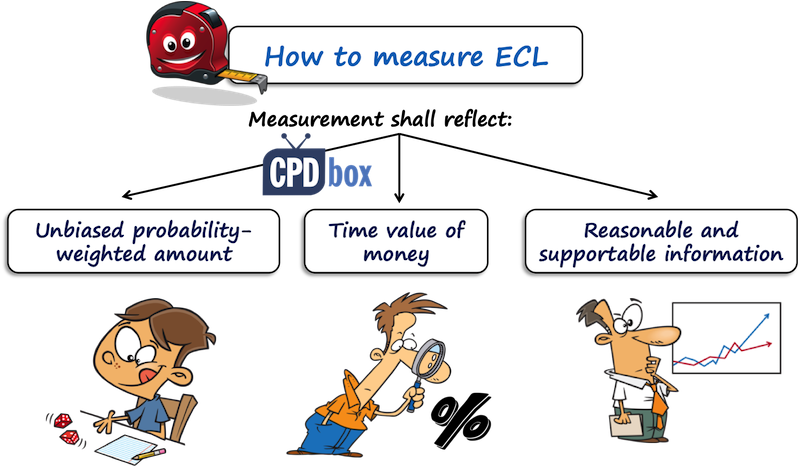Coronavirus and IFRS – What is happening?
Over past few months, coronavirus became the most mentioned word everywhere.
No wonder – not only it takes lives of our dear ones, but it also affects our daily life in many different ways.
In many countries, people cannot go to work, kids cannot go to school, shops are closed, machines are silent, the buzz stopped.
The thing is that the governments in many countries took certain measures to stop the spread of the infection and those measures affect the financial statements in a different way.
In this article, I tried to describe my take on the greatest effects of the pandemic on the financial statements, based on the current IFRS rules.
At the end of the article, you can find a few of my personal thoughts (but feel free to skip this part).
I think that only a very few items in the financial statements are left untouched and free of any effects of the current situation.
However, let me sum up the main considerations for you:
Does going concern principle still apply?
To stop the fast spread of the infection, many governments limited the business operations.
Retail shops are closed. Factories are idle and people stay at home.
That means that many companies stopped generating revenues.
So… can they survive the next 12 months?
Under Conceptual Framework, the entity shall prepare the financial statements under going concern assumption – that is, the entity will continue operations in the foreseeable future (see par. 4.1).
Under IAS 1, the management shall assess the going concern when preparing the financial statements.
It means that the assessment is NOT made on the reporting date (e.g. 31 December 2019).
It is made BEFORE the financial statements are issued.
Now, the pandemic broke out in January 2020 and no one could forecast or assume the financial effects of the pandemic itself and the measures taken to stop it.
However, if you are still preparing the financial statements during the pandemic, you should definitely assess the ability of your entity to survive and go on:
- Are you financially strong?
- Are your assets of high quality?
- Will your company be able to survive the next 12 months or so?
- Will you be able to find alternative sources of financing your business?
After you make this assessment, you have two choices:
- You assess that your company IS a going concern.
In other words, management believes that an entity will survive the pandemic.
However, in this case, you should make at least a disclosure in the notes to the financial statements that although the financial statements have been prepared under going concern assumption, there are many uncertainties surrounding the assessment.
- You assess that your company IS NOT a going concern.
In other words, the management does NOT believe that an entity will survive within 12 months.
In this case, the financial statements must be prepared in a different way. You can read and listen to my Q&A session here for further guidance.

Expected credit loss on financial assets
Even if you are not affected directly by the virus and the related measures, your clients can be affected.
And, they can be badly affected in a way that prevents them to pay you.
As a result, the expected credit loss on your financial assets can be much greater than you estimated based on your historical information and previous forecasts.
You can imagine that all forecasts made prior the outbreak are simply outdated and don’t apply anymore.
IFRS 9 says that expected credit losses shall reflect an unbiased and probability-weighted amount determined by evaluating a range of possible outcomes (see IFRS 9.5.5.17a).
And, you should take reasonable and supportable information about past events, current conditions and forecasts of future economic conditions available at the reporting date (IFRS 9.5.5.17c).

Forced closure of businesses by the governments is very crucial forward-looking information that became available only after the end of 2019 in many countries.
Yes, it is true that the first reports about the virus emerged before the end of 2019, however it is questionable that anyone could have estimated the severity of the impact on the business.
Thus in my opinion, while ECL at the end of 2019 will not probably incorporate the effect of all measures taken in 2020 to stop the virus (as the information was not available at the reporting date), it should incorporate at least some estimate of the effects of the virus on business.
However, if you have trade receivables or loans with debtors whose businesses and cash flows are strongly affected by the virus and the related measures, you should maybe incorporate this forward-looking information into the ECL measurement in the subsequent periods.
How?
Let me give you very short illustration.
Example: ECL and coronavirus pandemic
Let’s say that you have a debtor that owes you 1 000 CU (currency units). The debtor operates a retail store chain with clothes.
Due to the coronavirus pandemic situation, the local government ordered to shut down the shops and the debtor loses the revenues.
Now, the debtor has not gone into the bankruptcy or anything, but it is clear that he will not be able to repay the debt in line with the contract.
Based on the news, the statistical models of pandemic scenarios prepared by the experts and assessing the debtor’s financial statements, you identified three different scenarios:
- The pandemic will be over within one month, the shops will reopen and in this case the client suffers 10% decrease in revenues. This decrease will not affect debtor’s ability to pay on time in full, as his financial situation is stable. However, the statistical models of pandemics estimate the probability of this development at 10%.
- The pandemic will take longer time and the shops will reopen after 6 months. In this case, the client suffers significant decrease in revenues, but he will still be able to recover and you will lose 30% of the receivable. The probability of this scenario is 70%.
- The pandemic will be terrible and the shops will only reopen after 1 year. The debtor will go bankrupt, however, you will be able to recover some receivable from the sale of debtor’s property in the amount of 10% of the receivable (hence your loss is 90%). The probability of this scenario is 20%.
Let’s put this nicely in the table:
| Scenario | LGD | Probability | ECL |
| 1) Shops open in 1 month | 0% | 10% | 0 |
| 2) Shops open in 6 months | 30% | 70% | 210 |
| 3) Shops open in 1 year | 90% | 20% | 180 |
| Total | 390 |
Notes:
- Here, we do NOT take solely the most probable outcome into account. In such a case, ECL would have been just 210. Instead, we weight all scenarios and the loss is 390.
- ECL = CU 1 000 times LGD times probability
This is a very simple illustration of incorporating new forward looking information into the ECL calculation as a result of the coronavirus pandemic measures.
And, as you can see, we are dealing with lots of uncertainties and estimates.
The IFRS Foundation issued a document providing a short guidance on this issue. You can access it here.
Impairment of assets
The standard IAS 36 lists a few external indicators of impairment of assets and I consider the measures of the governments to stop the infection as very significant.
Therefore, yes, in many businesses the external indicator of impairment exists and you should test your assets for the impairment.
Especially in industries such as tourism, restaurants, entertainment and others, the fair value of assets as well as value in use will go down, for one very simple reason:
The estimated future cash flows generated by the asset (or cash generating unit) are much lower. Closed business does not generate any cash flows during the closure.
You can see the example with making cash flow projections for the impairment testing here.
Events after the reporting period
Under the standard IAS 10, you should:
- Identify significant events occurred after the end of the reporting period,
- Determine whether they are adjusting or non-adjusting, and
- Adjust the financial statements for adjusting events or disclose non-adjusting events.

The pandemic and related measures to prevent it are definitely significant event after the reporting period.
However – are they adjusting or non-adjusting?
Here, I would like you to think a bit.
What are the events affecting your business?
- Is it a virus outbreak itself?
- Or measures to prevent the spread imposed by the government?
In most cases, measures of the government are the major event, not the virus itself.
These measures happened only after the end of 2019 and therefore they are non-adjusting, so no accounting entries before the year in this respect.
However I think that most of these events will have a material impact on the financial statements, so the entities should disclose the existence of these events and try to estimate the financial impact.
Other effects
In my opinion, these are the areas affected by the current pandemic situation in the greatest extent.
But, the list is not exhaustive.
Here’s the short list of other potential affected items:
- Provisions under IAS 37 – maybe you will need to think of any restructuring plans, or provisions for onerous contracts;
- Measurement of inventories under IAS 2 – maybe the value of inventories of different kinds will go down, just because some of them might have an expiry period (and you are not able to sell them due to closure of retail businesses), or the customers are willing to spend less as they earn less money;
- Contract with customers under IFRS 15 – well, some customers will not have enough money to meet their contract obligations and that can result in early termination of contracts, modification of contracts, changes in variable considerations, etc.
- Lease contracts under IFRS 16 – in some cases lessors may need to change the lease payment schedules to ease their tenants’ lives, or just because government asked them not to charge rentals for some period. This can result in a lease modification accounting; or accounting for variable lease payments;
… and I can go on – indeed, this situation can affect pretty much everything in the financial statements.
My aim here was to highlight the main things to watch out.
Final word
I want you to know that we are all on the same boat.
And I am also aware that most of us have never faced anything similar so far.
Therefore, I would like to share also my personal thoughts about this situation with you.
I am a mom of three children, currently homeschooling them, because schools have been closed since early March.
At the same time, I see the panic around myself. Everybody is afraid of the virus and of the economic stress it causes – which is understandable.
However, as difficult as this may see, I try to stick with the following:
- No fear and no panic. The stress causes your body goes into “fight or flight or freeze” stress reaction. It means that all the resources are spent to fight the enemy and nothing is left for the regeneration and repair. Simply speaking – the stress weakens your immune system and you will get sick more easily.
Therefore, use all your brain to turn your thinking away from panic and fear events as much as possible.
- Lots of love. Love, gratitude, joy and other pleasant emotions do the exact opposite as stress – they actually strengthen your immune system. Spend your time with loved ones, use it to reconnect, to talk and enjoy each other.
- Don’t stop self-development. This is the time to take that online course you always wanted. Learn. There are so many great things to learn: soft skills, marketing, excel, writing, communication, accounting, IFRS… and many of these courses are free (hint: you can catch up and read all IFRSbox articles)
Please, if you have any questions or something to say, leave me a comment below the video.
Stay strong and healthy!
JOIN OUR FREE NEWSLETTER AND GET
report "Top 7 IFRS Mistakes" + free IFRS mini-course
Please check your inbox to confirm your subscription.
Recent Comments
- mohamed on How to Account for Spare Parts under IFRS
- KAREEM IBRAHEEM on Lease term when contract is for indefinite period
- mahima on IAS 23 Borrowing Costs Explained (2025) + Free Checklist & Video
- Albert on Accounting for gain or loss on sale of shares classified at FVOCI
- Chris Kechagias on IFRS S1: What, How, Where, How much it costs
Categories
- Accounting Policies and Estimates (14)
- Consolidation and Groups (25)
- Current Assets (21)
- Financial Instruments (56)
- Financial Statements (54)
- Foreign Currency (9)
- IFRS Videos (74)
- Insurance (3)
- Most popular (7)
- Non-current Assets (56)
- Other Topics (15)
- Provisions and Other Liabilities (46)
- Revenue Recognition (27)
- Uncategorized (1)





Thanks Silvia for the updated articles and great share of thoughts. Your portal is now the single source that I will always refer to whenever I need guidance on IFRS. Love you piece of works, great work! I can’t thank you enough for this.
Hi Silvia,
Thanks for the article.
I have a client who is a travel agent reselling air tickets. Due to the outbreak of corona virus after balance sheet date, many customers canceled air ticket booking and my client would need to refund them in full.
You mentioned that in assessing whether the event is adjusting or non-adjusting, we need to considered the nature of event affecting the business. That is, whether it is the virus outbreak itself or measures imposed by government to stop spreading.
How would you apply this to my case in determining whether the virus outbreak is an adjusting or non-adjusting event?
Well, I guess that they are cancelling because your government limited the travels. That happened after the year-end in most countries, isn’t it? Thus non-adjusting at the year end.
Thanks silivia though to me it has not been understood yet. What happens with refunding the money transaction by the customers whose trips were cancelled ?Doesn’t it in any way affect the already entered entries to make this event adjusting?
Hi madam Silvia!!! I’ve spent only two days reading your articles. Indeed they are more than helpful for both Accountants and students preparing for sitting in their CPA exams. I wish you write a book if your time allows. May God grant you abundance of blessings as you keep on helping Accounting field run and operate more friendly
Very good analysis & advice
Thanks Silvia. This is very informative article and a good guide for finance people.
Very useful and interesting article
Very interesting Silvia,
I would add that it is important to take into account the concept of IAS 01 of Impracticability since many of the events could not be performed despite the necessary efforts, for their completion
Thanks for your Written about this Topic, this is useful articles
Thank you so much for your comments
Hi and thanks for the article. Insightful as always.
You should probably change the formulation of
‘whose businesses and cash flows are hardly affected by the virus’ to ‘whose businesses and cash flows are affected hardly by the virus’.
This sentence got me confused for a while 🙂
A yess, you are right of course, it gives a different meaning 🙂
Hi Silvia,
Firstly, thank you for the marvellous content on this website – it’s incredibly useful! I came across it not as an accountant but as a financial translator. I’m always looking for good resources to improve and maintain my financial/accounting knowledge and your website has been among the better ones. Fancy launching your courses in Spanish? Latin America – Brazil + Spain = *big* market…
Secondly, as a linguist, I couldn’t pass this comment by (apologies). ‘Hardly’ means ‘almost not at all’, so it doesn’t fit into Marc’s suggested sentence either! Perhaps consider ‘whose businesses and cash flows have been hard-hit by the virus’, or ‘whose businesses and cash flows are affected significantly by the virus’.
Maybe it’s not an important precision for you anyway (your English is excellent, in any case, and what you meant is understood), but as a matter of professional OCD, I had to leave the comment; I hope you don’t mind 🙂
Have a great weekend!
Yes, thank you, I get your point. Well, sometimes I type faster than I think 🙂 All the best!
God bless you Silvia.
I really needed this article.
It was the one, that I was looking for.
Interesting topic and helpful!
I really appreciate your tireless effort to support and update professionals. Thank You!!!
Thank you for this timely article. Appreciate you Silvia.
Thanks very much Siliva.
Very helpful. Thanks a lot. Keep Safe.
Good article as always, thanks for delicious technical meal, May all of us be safe in this threatening juncture..
all in all, in addition to IFRS briefing on key points, thank you Silvia for your invaluable and priceless advice for how to stay safe and escape this deadliest and pandemic virus.
Well done. Thank you
I was waiting for these Update issues. I could not complete this without this update, IFRSbox is Really Helpful
Thanks for this useful article and for your advice!
I am an accountant in Brazil.
Great article and excellent advice.
Thanks Silvia for the information and the energy that you push it in myself. I am a Muslim and I have a high belief in judiciary and destiny according to the religion that I follow, but your last message at the end of the article gave me more strength on the need to tackle the virus and to deepen brotherhood and love among all people. I may write for you today, and I may not find you tomorrow, but honestly, because what remains will be the effect that a person has in this world.
Greetings to you and may God protect you and your family from all harm
Dear Nabeel, thank you for this comment, I appreciate. I am not a Muslim, but I believe that we should not live in separation, but in love for each other. We can overcome any crisis when we are together, helping each other, respecting each other, sharing love. S.
Thanks Silvia.,
What an enlightening piece!
Your writings on IFRS have always been, in totality, a reference material.
We are, indeed, in uncharted territory with the advent of this scourge.
There are a lot of uncertainties and the situation is fluid.
Methinks that with various policies and regulations, especially on compulsory lockdowns by governments and those charged with governance, the full impact and resultant IFRS treatment of this unusual occurrence will still remain unclear, especially in the next 12 months.
In addition to your thoughts on how to stay safe, it is advisable that everyone should be prayerful.
Hi Godson, yes, you are right. Loads of uncertainties here! I am very aware that we can estimate and the reality can still turn out differently. But – better than do nothing. Stay healthy and safe!
Excellent and super happy that you are addressing this topic as we are closing out the audit of 2019 with the accounting and audit teams working from home, and it definitely helps in these times to get this guidance from you. Stay safe with your family and thank you for your personal advice as well.
It’s a forward looking guidance. Thank you very much Silvia…
thanks so much Silvia, well understood
Hi Silvia, i have been following you and reading your articles, they are food to me everytime. Thanks for this and sure this pandemic is going to affect most items of financial statements but we shall overcome.
Great job!
Keep the good work.
How will you treat auditors fees in your financial statement
I love you so much. And am going to learn more on Excel and IFRS this season.
Thank you
Many thanks for the information .
Great Job Silvia, very important and fruitfull informaiton, thank you for this great job. Stay safe and all the best to you and your family.
Also need to consider IAS10 events after reporting period. i.e. 31 Dec year end, this should be in subsequent events (non-adjusting) but more complicated if you have 31 Mar year end (adjusting).
Dear Silvia,
As usual, you articles are always useful and direct to the point. Thanks for that!
Can we stop depreciation at the sites that were shut down temporarily by Government to cope with the virus spread. We operate shopping malls and now they’re all closed including the heating, lighting, etc.
Thanks
Hi Eddie,
thank you. Stopping the depreciation depends on your own choice. It is an accounting estimate that you can change. So the short answer is yes, if you set it up correctly, you can do so. However – I am writing about depreciation for accounting purposes, not for tax purposes – this depends on tax laws of the individual country.
Dear Silvia,
Finding time to write such intelligent and meaningful article even with family to cater for during this difficult period shows that you are really a strong character.
You have really inspired so many.
Kindly stay safe.
Remain blessed
Thank you silivia, we are on the same boat, i admire your work .
Dear Silva, You often tend to be the 1st port of call for me to refresh my understanding on any technical matter. This is very timely and I am sure useful to many concerned accountants and business operators. I share a great deal of articles of interest on LinkedIn but note it isn’t one of your preferred sites.
The content and your thoughts are much valued and appreciated.
May God keep you and your family safe and protected, too, in these un-precedented times. Kind regards & Salaam, Saif.
Dear Mohammad, thank you very much for your support and for sharing my work. I appreciate any kindness, and not only during these difficult times. May God stay with us all. S.
Hi Silivia,
I have a question with regard to suspension of borrowing cost.
Para 20 of IAS 23 states that, “An entity shall suspend capitalisation of borrowing costs during extended periods in which it suspends active development of a qualifying asset.” Since the standard does not define the term “extended period”, would it be required to suspend capitalisation when the active development is suspended for a temporary period.
Further, drawing parlance from the example in Para 21 of IAS 23 where capitalisation is allowed to be done in cases where the suspension of active development is due to reasons beyond the control of entity, would an event such as nationwide lock down due to COVID-19 require suspension of capitalisation of borrowing cost. It is pertinent to note that in the current scenario as well the disruption was beyond the control of entity and borrowing cost incurred was solely on account of the qualifying asset.
Looking forward for your valued response in this matter
Hi Silvia,
Thanks for all your efforts engaged with this article. I must say its a timely write up with excellent analysis.
Regards
Very good article.Can you also elaborate on how to calculate ECL in respect of trade receivables while applying simplified approach.
Dear Silvia.
Thank you for your informative article on the potential financial effects of this pandemic.
Very useful indeed which every business needs to take into account, including all users and readers of financial statements.
Many thanks Silvia – this is indeed a great article and certainly relevant for my clients – thanks again and keep up the good work! Take care and Stay safe 🙂
A great piece of article on the effects of pandemic on businesses. Thanks for the personal advice at the end of the article too.it is physiologically relieving.
Thanks Silivia for the very helpful article and the excellent personal advice. I concur totally. Stay safe.. Margaret
Thank you
Hi Silvia,
Thanks for this article. It will guide us through these uncertainty and difficult times
Regards
Many thanks Silvia for your timely and potent education
Thank great analyse will try to apply it to my company
Very useful and applicable to our real life as professional finance and accounting people.
Only ask here is please add an option to share over LinkedIn. I don’t see it here. Thanks.
Thank you so much for your words Silvia, I would like to add to your excellent analysis the IFRS 13 – Fair Value assessment if there are any financial assets measured at Fair Value level 3 of FV hierarchy. It’ll be important to assess the inputs used. My best wishes!
Thank you, Elder!
Great job Silvia,
The pandemic will surely affect the ECL figures going forward. Some organisations are yet to be out of the negative effect of the global economic meltdown of 2008/2009 and the effect of the current virus will be severe on the company ability to generate revenue’s. Going concern of many organisations will be threatened.
Keep the flag flying